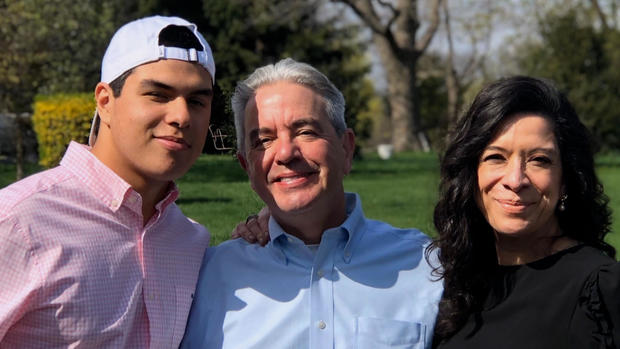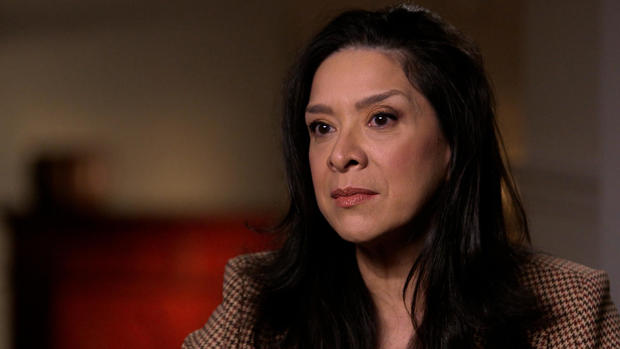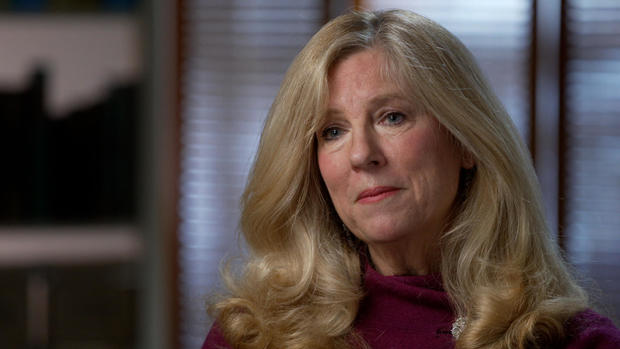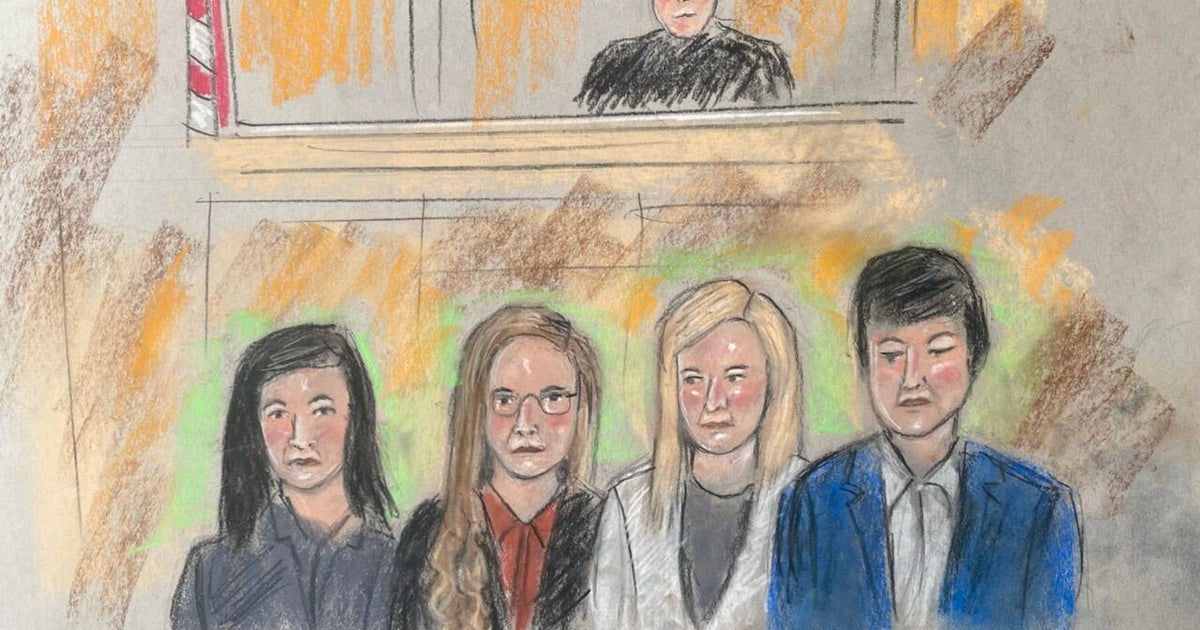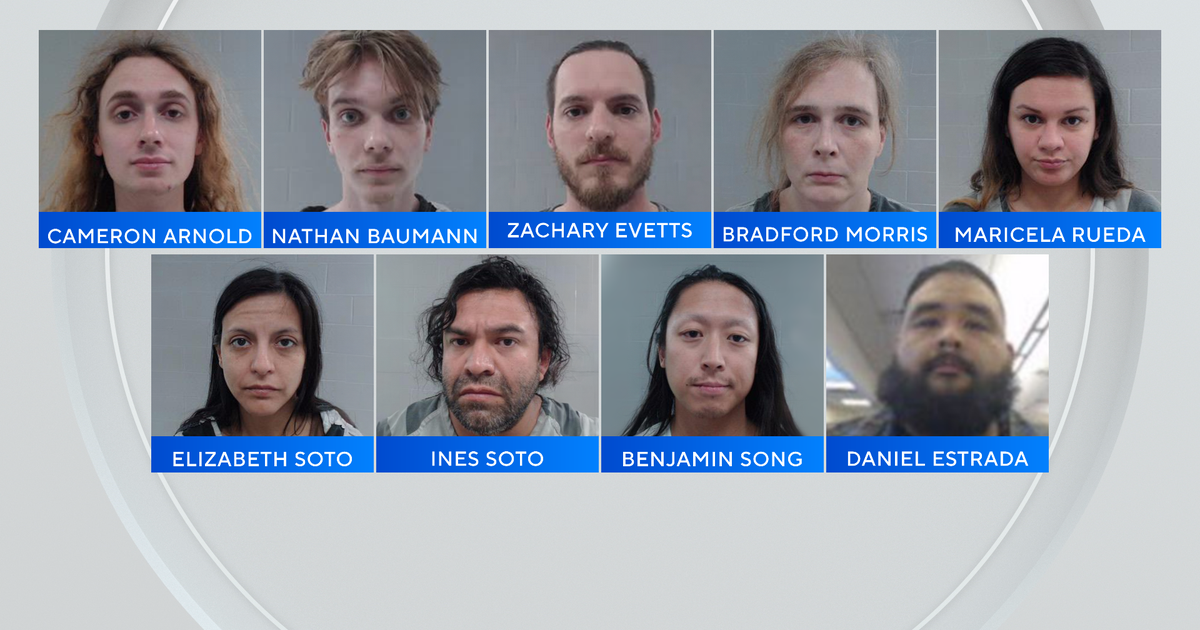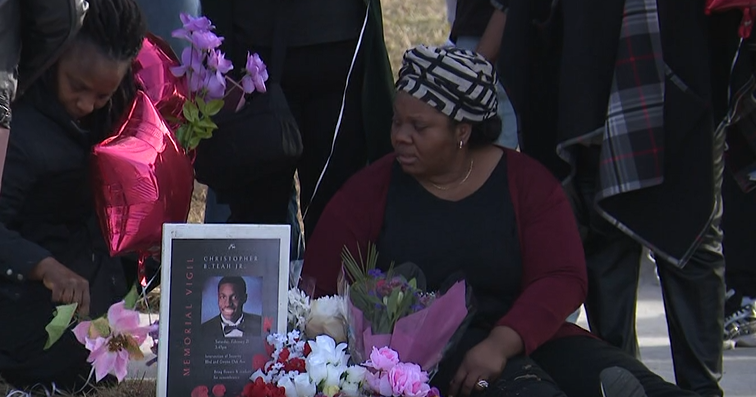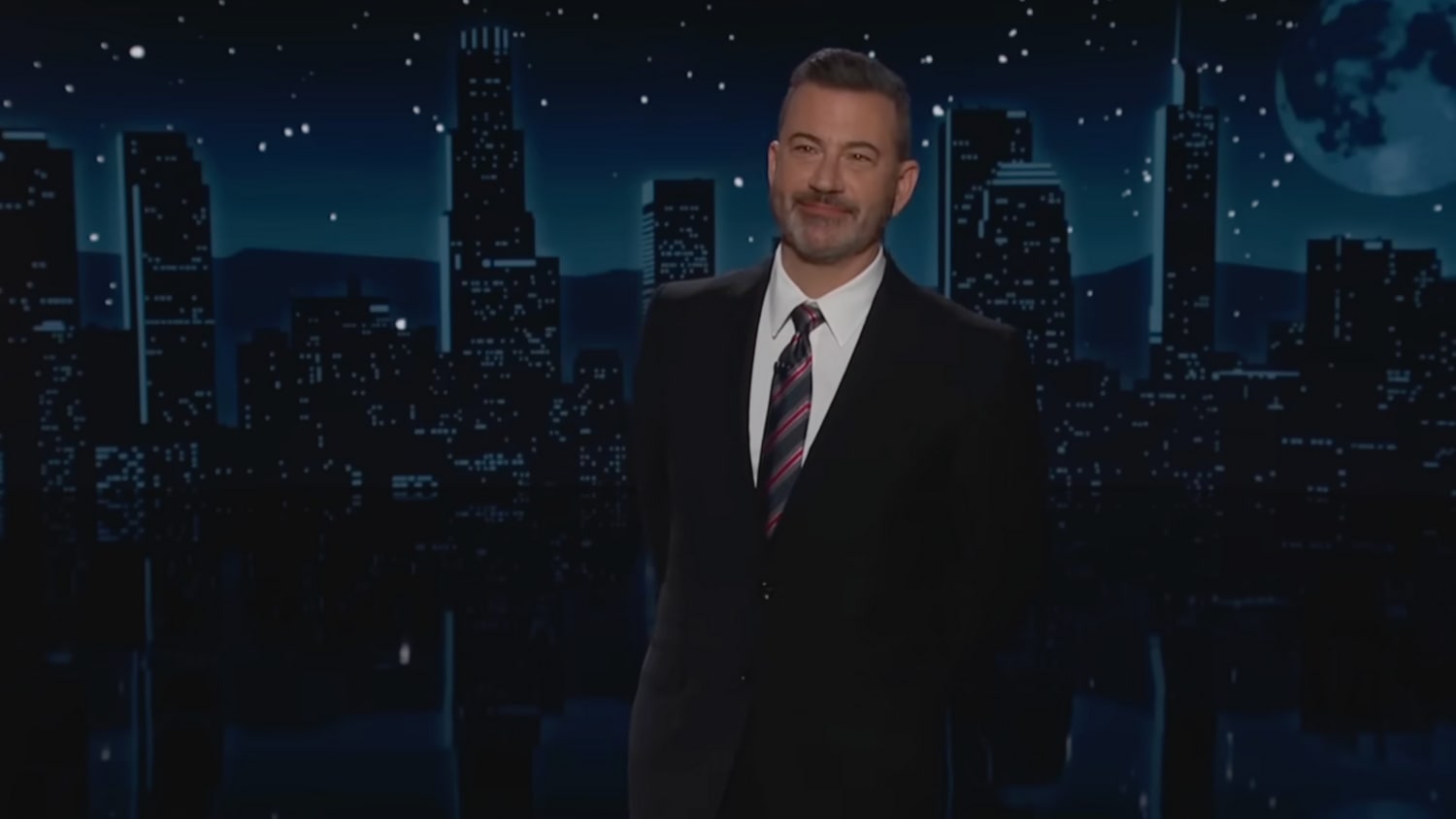Federal judges call for increased security after threats jump 400% and one judge's son is killed
Half the time someone is unhappy with a judge's ruling. The normal recourse is an appeal. But in the caustic atmosphere of today's politics, there's a real chance the disgruntled party will threaten the judge. In the last five years, threats of federal judges have jumped 400% to more than 4,000 last year – many of them death threats, sometimes ending in violence. Now, judges are breaking with tradition and publicly calling on lawmakers to provide more protection. One of the strongest voices is federal judge Esther Salas. This past July, she was at home in New Jersey, in the basement with her son Daniel, cleaning up after his 20th birthday party, when a man disguised as a FedEx driver pulled up outside.
Esther Salas: Danny turned around and he said, "Let's keep talking. I love talking to you mom." And it was at that exact moment that the doorbell rang. And before I could stop him, he just shot up the stairs. The next thing I hear is "boom." It just sounded like a mini bomb. And then I hear "no." And then I hear "boom, boom, boom." And I just screamed, "What is happening?" When I got upstairs, it was, it was something no mother should ever see.
Daniel lying bleeding by the door; Mark, her husband, on his knees holding his side. Daniel was barely clinging to life.
Esther Salas: I--I didn't even know what to do. I remember picking up his shirt and seeing the bullet hole. You know, we were screaming, "Daniel hold on" and "don't leave us." And then I just, as I think about that day I just, I realize I was watching my only child fade away.
Daniel died on the way to the hospital. Mark is lucky to be alive.
Bill Whitaker: How seriously injured was he?
Esther Salas: Mark was shot three times – in the – right chest, left abdomen, in the arm.
A close-knit family, they called themselves the three musketeers. Judge Salas told us Daniel, a college sophomore, was the center of their universe. From his wounds, the FBI said, it appeared Daniel had tried to block the gunman.
Bill Whitaker: When did you realize that the attack was meant for you?
Esther Salas: It wasn't until the FBI debriefings. They'd looked at this case inside and out, tell me "Ma'am, you were the target. He wanted to get you."
The shooter was Roy Den Hollander, a 72-year-old lawyer. He harbored deep hatred for women and left behind a bitter manifesto. He accused Judge Salas of being, quote, a "lazy Latina", dragging her feet on his lawsuit. Police found his body the next day, he had shot himself. The FBI discovered he had killed another lawyer a week before. Then he went hunting for Judge Salas.
Esther Salas: He knew where obviously where I lived. He knew my routes to work. He knew the church we attended. He had Daniel's school. He knew baseball games. Just a complete work up on me and my family.
Bill Whitaker: The information that he got, all from legal sources?
Esther Salas: All open sources, they call it.
We met Judge Salas outside her home six months after Daniel's murder. She told us her husband needs additional surgery. The house has been sold. Twenty years of wonderful memories, she told us, and one that's excruciating.
Esther Salas in YouTube video: We're living every parent's worst nightmare, making preparations to bury—bury our only child, Daniel.
Last August, in a highly unusual move for a federal judge, Judge Salas made a personal plea to lawmakers on YouTube.
Esther Salas in YouTube video: We may not be able to stop something like this from happening again, but we can make it hard for those who target us to track us down.
Since Daniel's funeral, Judge Salas has become a crusader for federal legislation to scrub judges' personal information from the internet. Her mission became more urgent when the FBI discovered a second locker in New Jersey belonging to her son's killer.
Bill Whitaker: What did they find? What was in the locker?
Esther Salas: They found another gun, a Glock, more ammunition. But the most troubling thing they found, was a manila folder with a workup on Justice Sonia Sotomayor.
Bill Whitaker: Supreme Court Justice Sotomayor?
Esther Salas: Yes. Chilling.
Bill Whitaker: What do you think when you find that a Supreme Court Justice was on his list?
Esther Salas: More than on his list, on his sights. They had her favorite restaurants, where she worked out, her friends.
Tonight is the first time that plot has been revealed.
Esther Salas: Who knows what could have happened? But we need to understand that judges are at risk. We need to understand that we put ourselves in great danger every day for doing our jobs. This fact has to wake us up.
Judge Salas told us she never dreamed she'd be putting her family in harm's way when she was sworn in in 2011.
The last judicial security upgrade was 15 years ago—after Chicago Judge Joan Lefkow came home one night and found her husband and mother shot dead by a disgruntled plaintiff.
The new legislation, to be taken up by the Senate, is seeking more than $250 million for home security and 1,000 more deputy marshals. It would erase a long list of personal data online – such as a home address, driver's license, and property tax records.
Bill Whitaker: You chose to be a judge. And in becoming a public person, don't you have to give up some of your personal details for the sake of accountability?
Esther Salas: You're right, I did choose to become a public servant. And if anyone has a problem with what I've ruled in a particular case, they can appeal. If anyone is upset, the courthouse address, you know, it's known to everyone. Come to the courthouse. But why do you need to come to my house?
We can't show you, but U.S. marshals now provide round-the-clock security for Judge Salas. She told us judges are increasingly threatened online. Last year, there were 4,200 threats against federal judges. She read us a few of those.
Esther Salas: "We," quote, "must start killing these corrupt politicians and judges, and their families," end quote. Another one, "The judge is a traitor and has a death sentence."
Bill Whitaker: And this is since the death of Daniel?
Esther Salas: This is since Daniel's murder in this very house. One other one just in Mississippi. Quote, "I will kill you. I just wanna get the gun, and come down there, and blow all their brains out."
But perhaps no judge in the country has felt the heat of online threats more than senior U.S. District Judge James Robart.
Emotions were already running high when Judge Robart temporarily blocked former president trump's first travel ban, barring some Muslim travelers. Critics posted his home phone and address online. But nothing prepared him for the tsunami of hate when president trump used his Twitter bully pulpit to scorn him as a "so-called judge."
James Robart: When you call someone a so-called judge, what you do is you attack the judiciary. You may not even have wanted to convey that message, but that's the message which your 40 million Twitter followers took down, which was you were never authorized to issue this decision.
Death threats flooded in. Then President Trump tweeted again.
Bill Whitaker: If I recall, he also said to blame you if there should be a terrorist attack on the country?
James Robart: People took that as somehow I was giving permission for their families to be endangered. And then the tone for a number of the messages turned into "you must be stopped."
Bill Whitaker: What did you think about that? When the president attacks you?
James Robart: I thought he had a right to attack my decision. I don't think that criticizing a judge is acceptable. I recognize there's a dispute on that. There is no dispute at the point that you start to talk about "I'm going to kill you" or "I'm going to hurt you", or more importantly to me, "I'm going to hurt your family". That's over the line and can't be tolerated.
Judge Robart was bombarded with 40,000 messages. 1,100 were serious enough to be investigated. There were so many death threats that U.S. marshals set up camp around the judge's house.
James Robart: The idea of needing a, you know, bomb-sniffing dog to go into a restaurant before we could have lunch, impacts you but you just try to, you know, not let that bother you.
Bill Whitaker: That actually happened?
James Robart: (laugh) Yes. If you wanna know how to be really unpopular with restaurant owners, show up with your dog, which runs around the restaurant barking. And a number of U.S. marshals who are noticeable.
Bill Whitaker: You're chuckling now but I take it that at the time you didn't see the humor in this?
James Robart: (sigh) No, I didn't.
Then federal investigators uncovered something more ominous. Thousands of threats that looked to be from Americans – were actually from Russia, part of a long game by Vladimir Putin to splinter American democracy.
Suzanne Spaulding: If Putin can undermine a significant segment of the population's willingness to accept a court's decision, then he can cause chaos in this country.
Suzanne Spaulding ran top cybersecurity operations for both Democratic and Republican administrations. She told us Russia undermines the justice system by fanning some Americans' suspicions that judges are partisan.
Bill Whitaker: What did Judge Robart do to put himself in Russia's cross hairs?
Suzanne Spaulding: They attacked him, his decision as reflecting his personal political preferences, as opposed to following the rule of law. And that leads people to conclude that it is appropriate to make threats of violence. And as we saw in the tragic case of Judge Salas, to actually carry out an attack of violence.
Bill Whitaker: How big a threat do you think this is?
Suzanne Spaulding: You know, I think we got a taste of that on January 6th.
Spaulding told us since the siege of the Capitol, there's more pressure on law enforcement to determine which online threats might turn into physical attacks. Take the example of an Alabama man who answered the online call with a truckload of weapons and a hand-scribbled hit list -- second from the top, an Indiana judge.
Bill Whitaker: So how do you answer people who will say that what I say online, even if it's aggressive, it's my First Amendment right?
Suzanne Spaulding: So you do have a First Amendment right to express your opinion, even if it's an unpopular opinion. But threats of violence, incitement to violence, those are things that law enforcement can legitimately look into, particularly when it's against our public servants.
Judge Salas lives with those threats. But when the courthouse reopens after the pandemic, she told us Daniel would want her to keep going.
Bill Whitaker: Will you be concerned when you re-enter this courtroom?
Esther Salas: No, we're changed forever. You know, Mark and I are – are different people today, sadly. But as far as what I do on the bench, no, that's not—I'm—that's not gonna change. I'm not gonna let Mr. Hollander take that away from me—my integrity, my work ethic, and my pride. No. He won't take that.
Produced by Heather Abbott. Associate producer, LaCrai Mitchell. Broadcast associate, Emilio Almonte. Edited by Craig Crawford.

